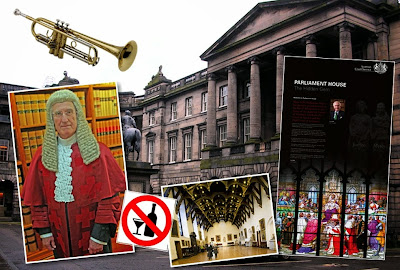 Lord Gill hosted taxpayer funded posh party for court refit. SCOTLAND’S top judge celebrated a £58million taxpayer funded refit on the Court of Session by holding a £36K exhibition and party which included trumpeters, archers and a get together for senior political figures and members of Scotland’s legal establishment.
Lord Gill hosted taxpayer funded posh party for court refit. SCOTLAND’S top judge celebrated a £58million taxpayer funded refit on the Court of Session by holding a £36K exhibition and party which included trumpeters, archers and a get together for senior political figures and members of Scotland’s legal establishment.
However, Lord President Lord Brian Gill, 73, banned guests from drinking alcohol to toast the refit of Parliament House – Gill’s seat of power in the Royal Mile.
Documents obtained via Freedom of Information legislation show worried court staff debated whether they could obtain favourable press coverage for the event – which was held close to the independence referendum.
Principal court clerk Graeme Marwick asked Lord Gill about the possibility of alcohol being served to guests who included the Lord Advocate, top politicians from the Scottish Government and figures from the church. However, Gill said No.
The minutes of the discussions arranging the party reveal court staff worries that guests would not be able to meet and interact without a glass of wine.
 Court staff meeting papers reveal discussions on exhibition & booze ban party. Under the heading of disadvantages of Gill’s booze ban, one court official criticised the booze ban, saying there would be “No opportunity for a post ceremony glass of wine and canapes/entertainment and networking amongst the guests.”
Court staff meeting papers reveal discussions on exhibition & booze ban party. Under the heading of disadvantages of Gill’s booze ban, one court official criticised the booze ban, saying there would be “No opportunity for a post ceremony glass of wine and canapes/entertainment and networking amongst the guests.”
Eager to provide senior guests with suitable music to accompany their sausage rolls and buffed, a member of staff queried: “Should there be entertainment at the function- possibly a string quartet from the Royal Conservatoire of Scotland?”
Lord Gill agreed to spend £750 hiring trumpeters from Glasgow’s Royal Conservatoire. Gill is also a trustee of the Royal Conservatoire, based in Glasgow.
To the sound of music and political chatter, guests of the Lord President’s taxpayer funded bash were eventually treated to soft drinks and canapés – costing £3,620.
One legal insider joked “Given who was in attendance I wouldn’t be surprised if someone brought along an emergency flask of booze”
Hosting the event, Lord Gill also unveiled a brass plaque marking the major refurbishment of the sprawling Parliament House site, comprising of some 700 rooms within the sprawling complex of buildings.
However, speeches given by politicians and legal luminaries at the event failed to mention concerns which have now surfaced relating to who actually owns which parts of the Parliament House complex – which has since been in the news after it had been discovered Scottish Ministers had gifted some of the titles to the Faculty of Advocates.
Details surrounding the loss of Parliament House to Edinburgh – come from an investigation undertaken by well known land reform campaigner Andy Wightman – who discovered that in 2006 the Scottish Government asked Edinburgh City Council to confirm the ownership of Parliament House – which includes Parliament Hall and Laigh Hall. The moves by the Scottish Government to clarify ownership of the court buildings occurred prior to the taxpayer funded £58 million refurbishment project (originally budgeted at over £120m) of the sprawling court buildings.
However, after inquiries by government lawyers on the exact ownership of Scotland’s most highest courts, Edinburgh City Council concluded they were unaware of who owned Parliament House. This led to ownership transferring to Scottish Ministers who then allowed the Faculty of Advocates to register the title deeds to the interior of the building in its name.
It transpired the Faculty of Advocates had in-fact, lobbied the Scottish Government to hand over ownership.
Writing on his blog, Mr Wightman said: “The Faculty of Advocates has for centuries regarded Parliament House as theirs. They had almost exclusive use of it and so, by means as yet unclear, within a month of Scottish Ministers taking ownership, the Faculty persuaded Scottish Ministers to convey to its ownership for no consideration the room known as the Laigh Hall within Parliament House.”
A trove of eighty eight pages of documents obtained from the Scottish Government under Freedom of Information legislation later revealed Scottish Ministers plan to do nothing over their handing over of the Parliament Hall land titles to the Faculty of Advocates.
Throughout the documents – which contain communications between civil servants, briefings to Ministers, land reports and letters from Edinburgh City Council asking for meetings, it is clear Scottish Ministers favour leaving the titles to the nation’s top courts with the vested interests of the legal profession.
During a First Minister’s Questions session at Holyrood, Nicola Sturgeon was asked by Alison Johnstone MSP (Lothians, Green Party) about the Parliament Hall land grab by the Faculty of Advocates.
In her reply, featured here: Parliament House handed over to Faculty of Advocates FMQ’s Nicola Sturgeon 19 February 2015 Nicola Sturgeon claimed she found no fault on the part of the Scottish Government – who handed over the titles to the Faculty of Advocates – effectively little more than a lawyer’s lobby group. The First Minister went on to warn “ there is no easy solution to the issue of restoring title to the City of Edinburgh Council” without giving a real explanation of why the titles were transferred in the first place.
The titles to the Laigh Hall – Parliament House – Queen Street – currently stand in the name of “SIDNEY NEIL BRAILSFORD Queen’s Counsel, Treasurer of HONOURABLE THE FACULTY OF ADVOCATES Edinburgh, as Trustee and in Trust for said Faculty”. Sidney Brailsford is none other than High Court Judge Lord Brailsford.
TOP JUDGE SILENT OVER PARLIAMENT TITLE SWAP
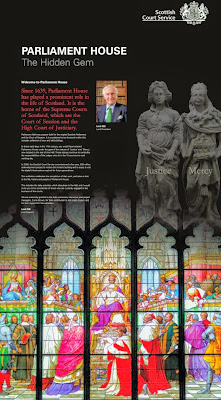 Taxpayers not invited to Gill’s £36K bash got an informative leaflet on the £58million public spend on Parliament House. During the summer of 2013, Scotland’s top judge Lord Gill – head of the Scottish Court Service Board, and the Scottish Court Service Chief Executive Eric McQueen appeared before MSPs at the Scottish Parliament’s Justice Committee to give evidence on court closures and the millions spent on Parliament House – yet neither the judge nor the Courts chief mentioned their astonishing secret to the MSPs present – that the title to Scotland’s highest court buildings had been swiped by the Faculty of Advocates in a deal on the sly with Scottish Ministers.
Taxpayers not invited to Gill’s £36K bash got an informative leaflet on the £58million public spend on Parliament House. During the summer of 2013, Scotland’s top judge Lord Gill – head of the Scottish Court Service Board, and the Scottish Court Service Chief Executive Eric McQueen appeared before MSPs at the Scottish Parliament’s Justice Committee to give evidence on court closures and the millions spent on Parliament House – yet neither the judge nor the Courts chief mentioned their astonishing secret to the MSPs present – that the title to Scotland’s highest court buildings had been swiped by the Faculty of Advocates in a deal on the sly with Scottish Ministers.
During questions from Justice Committee MSPs, SCS Chief Executive Eric McQueen gave evidence on the massive £60 million taxpayer funded spend on Parliament House.
The Court Service Chief told MSPs: “We are just coming to the end of the Parliament house contract; in total, the budget for it was £65 million and I think that we expect the final spend to be in the low £60 millions. The project has been delivered on budget, on time and on quality. How it has been delivered is a tribute to the Scottish Court Service.
McQueen continued: “I will give a potted history of the Parliament house situation. About 10 years ago, a scheme was in place that was going to run to way over £120 million. That was brought to a stop to allow us to reassess things and to consider the best strategy. At the same time, we looked at a business case for moving away from Parliament house altogether and having a development on a greenfield or brownfield site on the outskirts of Edinburgh. The major problem with Parliament house is that it is a grade A listed building and is a site of special historical interest. It should be a landmark building for the whole of Scotland.”
In an intervention, the Convener of the Justice Committee – Christine Grahame MSP said: “I am glad that you did not move to a greenfield site. It would have been a bit like going to B&Q. I do not mean to malign B&Q, but I like the old Parliament house building.”
Eric McQueen replied : “Had the decision been taken to move out of Parliament house, that asset would have been left with the Scottish Government. The infrastructure and the services were shot, and there was no fire certificate in place for the building. It would have cost as much to move out as to redevelop the building. From the point of view of the benefit to the nation and to the Scottish Government’s purse, the investment of the £65 million in Parliament house over that five or six year period was quite a sensible business case decision.”
Sitting beside Eric McQueen was Lord President Brian Gill, who did not at any stage of the meeting volunteer information to the Justice Committee in relation to the titles arrangements of Parliament House, despite the multi million pound taxpayer funded refurbishment.
Pressed for a statement on why Lord Gill or Eric McQueen did not inform the Justice Committee of the fact tens of millions of pounds of taxpayer money had been spent on a building partly owned by the Faculty of Advocates – the Judicial Office refused to give any comment.
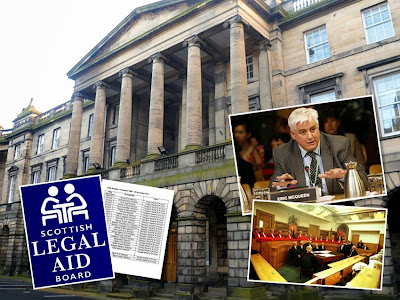

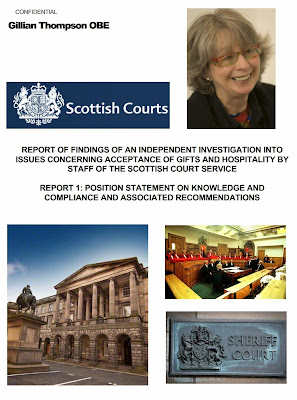
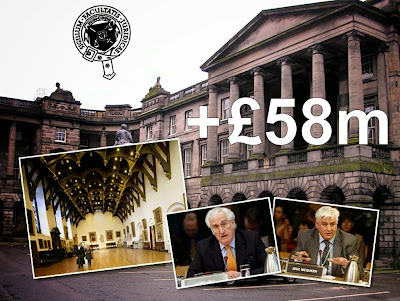
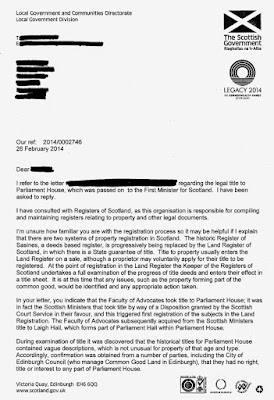





























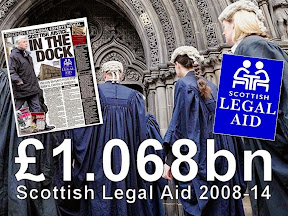















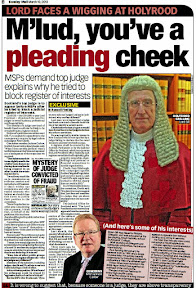
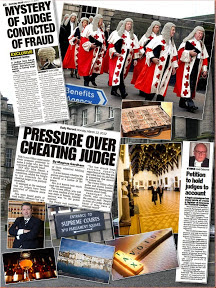
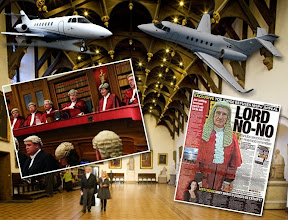


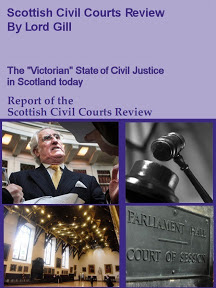
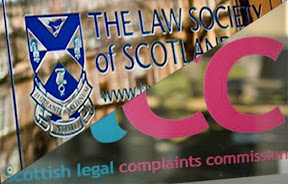




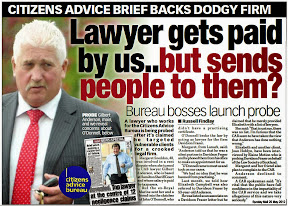



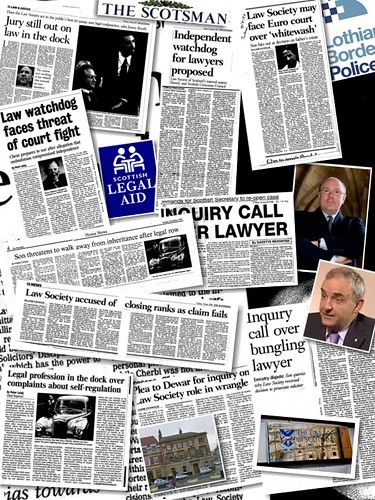




You must be logged in to post a comment.